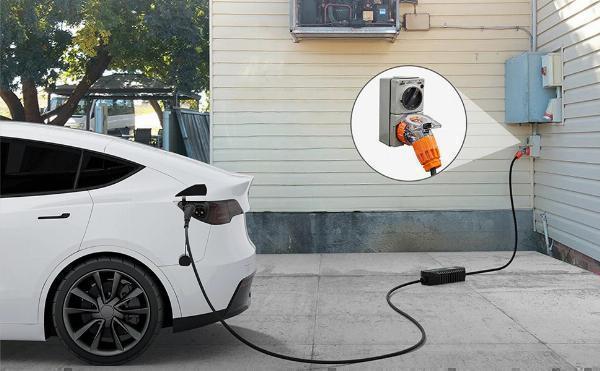Car EV Chargers: Powering the Future of Sustainable Transportation

Strong 8k brings an ultra-HD IPTV experience to your living room and your pocket.
As the world shifts towards cleaner, greener alternatives in transportation, electric vehicles (EVs) are at the forefront of this revolution. A key component to the rise of electric vehicles is the development of reliable car EV chargers, which allow these eco-friendly cars to function efficiently. Whether for personal use, businesses, or public infrastructure, EV chargers play a critical role in enabling the electric vehicle industry to thrive. Let's explore the world of EV chargers and their significance in shaping the future of transportation.
What Are Car EV Chargers?
Car EV chargers are devices designed to recharge the batteries of electric vehicles. Much like traditional gas stations that fuel internal combustion engine (ICE) vehicles, EV chargers are essential for maintaining the operation of electric cars. However, instead of gasoline or diesel, they deliver electricity to recharge the EV's battery. These chargers come in various types and offer different charging speeds depending on the vehicle, power output, and charger model.
Types of Car EV Chargers
There are three main types of EV chargers:
Level 1 Chargers
Level 1 chargers are the simplest and most basic form of EV charging. They typically use a standard 120-volt AC household outlet, making them convenient for home use de portable Ev Chargers. However, they have a relatively slow charging speed, adding 3 to 5 miles of range per hour. This type of charger is best suited for overnight charging, making it ideal for owners with limited driving needs.
Level 2 Chargers
Level 2 chargers use a 240-volt power source, similar to the one used by appliances like dryers. These chargers are faster, capable of providing 15 to 30 miles of range per hour of charging. Level 2 chargers are common in public charging stations, workplaces, and homes where faster charging is needed. They're popular for homeowners who want more convenience and flexibility with their EV charging.
DC Fast Chargers
Also known as Level 3 chargers, DC fast chargers deliver the highest charging speeds by using direct current (DC) rather than alternating current (AC). These chargers can provide an 80% charge in as little as 20-30 minutes, depending on the vehicle and battery size. DC fast chargers are typically found along highways and in areas with high EV traffic, providing quick, reliable power for long-distance travelers.
Benefits of EV Chargers
Eco-friendly Solutions
By enabling electric cars to recharge their batteries, EV chargers directly contribute to reducing carbon emissions and reliance on fossil fuels. Electric vehicles powered by clean energy sources like solar or wind can drastically lower greenhouse gas emissions, thus promoting a more sustainable environment.
Convenience and Accessibility
With the expansion of EV charging infrastructure, drivers can charge their vehicles at home, at work, or in public locations. This convenience makes EV ownership more appealing, as drivers no longer need to rely on gas stations. The proliferation of charging networks also helps reduce range anxiety, which is the fear of running out of battery power before reaching a charging station.
Cost Savings
Charging an electric vehicle is significantly cheaper than fueling a traditional gasoline-powered car. The cost of electricity per mile is generally lower than gasoline, especially when charging during off-peak hours or using renewable energy sources. Over time, this results in substantial savings for EV owners.
Support for Energy Independence
As more countries invest in renewable energy sources, electric vehicles and chargers help reduce dependency on foreign oil. By transitioning to electricity-powered transportation, nations can work towards energy independence, ensuring a more stable and resilient energy future.
The Future of EV Chargers
The demand for electric vehicles continues to grow, and so does the need for an extensive and efficient charging infrastructure. Governments and businesses worldwide are investing heavily in expanding EV charging networks to meet this demand. As technology advances, we can expect even faster and more convenient chargers to emerge, reducing charging times and improving efficiency.
One area of rapid development is wireless charging technology, which allows cars to charge simply by parking over a designated area. This eliminates the need for cables and plugs, offering an even more seamless charging experience. Additionally, smart chargers with integrated AI and Internet of Things (IoT) capabilities can optimize charging times, reduce energy consumption, and interact with the grid to help balance demand.
Conclusion
Car EV chargers are a crucial component in the evolution of sustainable transportation. As more people transition to electric vehicles, the demand for efficient, accessible, and eco-friendly charging solutions will continue to grow. With ongoing technological advancements and increased investment in infrastructure, EV chargers will play a pivotal role in shaping the future of transportation, contributing to a cleaner, greener, and more sustainable world.
Note: IndiBlogHub features both user-submitted and editorial content. We do not verify third-party contributions. Read our Disclaimer and Privacy Policyfor details.


